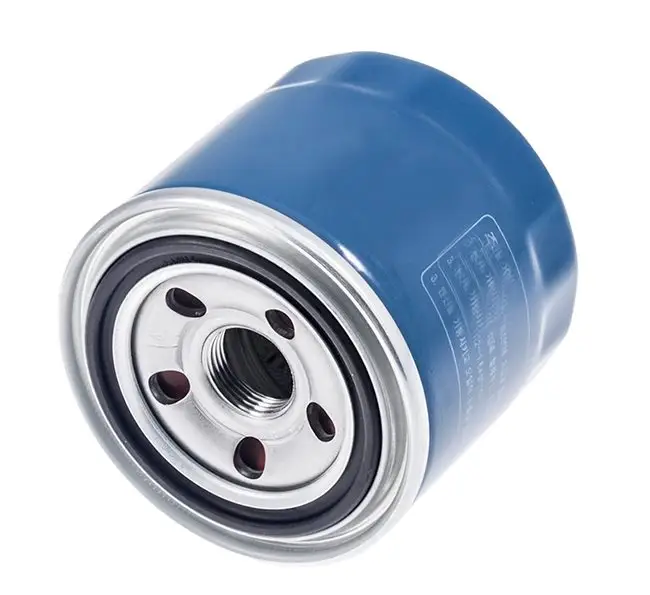Feb . 23, 2024 15:59 Back to list
car cabin filter-When Should You Replace Your Car Air Filter?
When Should You Replace Your Car Air Filter?
Car air filters are critical to the efficient functioning of a vehicle's engine. These filters capture impurities like dirt, dust, and debris in the air, preventing them from entering the engine and causing potential damage. In addition to protecting the engine, air filters help increase vehicle performance by ensuring the engine receives adequate clean air. An engine's performance and fuel efficiency may suffer substantially without a clean air filter. As a result, car owners must understand the significance of air filters and adequately maintain and replace them as needed.

Purpose Of The Car Air Filter
A car air filter's principal function is to purify the air that enters the engine. The air enters the vehicle's air intake system through the air filter. The air filter usually comprises a thick, fibrous material that traps particulate matter in the air and allows clean air to pass through the filter and enter the engine. After the filter has cleaned the air, it is sent into the engine and used for combustion.
A car air filter is required to protect the engine and improve the air quality for the occupants, especially those with allergies or respiratory issues. Overall, a car air filter’s job is to keep the engine running smoothly and efficiently and protect the vehicle's and its occupants' health. Therefore, it is crucial to replace the air filter regularly.
When Should You Replace Your Car Air Filter?
Several factors can influence when you should replace your car's air filter.
Air Filter Type
The type of air filter in your car is one of the most critical criteria in determining when it is time to change it. Depending on their construction and materials, some air filters can survive significantly longer than others. For example, a high-quality synthetic air filter may last much longer than a cheaper paper air filter.
Road Conditions
If you frequently drive on dirt roads or in polluted areas, the air filter may need to be changed more frequently. Similarly, if you drive in a location with a high concentration of pollen or other allergens in the air, you may need to replace the filter more often.
The Air Filter's Age
The average air filter's lifespan is 12,000 to 15,000 miles or one year, whichever comes first. However, this can vary depending on the vehicle's make and model and driving conditions.
Recommendations From The Manufacturer
Based on the make and model of your vehicle, the owner's manual should specify how frequently you should replace the air filter. Following these instructions is generally a good idea to ensure that the air filter works properly.
The State Of The Air Filter
Replace the air filter if it is visibly dirty or appears clogged. If you notice any performance concerns with your car, such as a decrease in acceleration or fuel efficiency, this could be a clue that you need to replace the air filter.
Tips To Maintain Your Car's Air Filter
Maintaining your car's air filter is critical for it to continue to perform correctly. Here are some tips for you to follow:
- Check the air filter regularly. Inspect the air filter regularly to see if it is dirty or clogged because a dirty air filter can affect engine performance and efficiency.
- Avoid getting oil or dirt nn the filter. Oil and grime can harm the filter and reduce its ability to catch impurities. Avoid instances where oil or dirt may come in contact with the air filter to keep it clean.
- Wash the filter only when recommended. Some air filters are not meant to be washed and can be harmed if they are. If your air filter is not washable, replace it as it becomes dirty.
- Follow the suggested replacement interval. Many manufacturers recommend replacing air filters every 15,000 to 30,000 miles. Check your owner's manual or consult a professional mechanic to establish the recommended replacement interval for your make and model.
Following these guidelines ensures that your car's air filter protects your engine and maintains ideal performance.
Summary
Car air filters are critical to the performance and durability of a vehicle's engine since they clean the air that enters the engine for combustion by capturing dirt, dust, and other impurities from the air.
A blocked air filter is ineffective at supplying clean air to the engine, resulting in decreased performance and fuel economy. Over time, the engine may suffer from damage, as does the air quality inside the cabin.
It is critical to replace the air filter regularly based on the type of filter, driving circumstances, and the recommendations in the owner's manual. Regularly checking and maintaining the air filter is a simple and cost-effective technique to ensure that the engine operates smoothly and efficiently.
-
High-Quality Fuel Filter for Cars – Durable, Efficient Spin On Fuel Oil Filter
NewsJul.25,2025
-
China Cabin Filter Supplier – Premium Auto Air & Oil Filters Exporter
NewsJul.24,2025
-
Premium Antiskid Tire for Safe Driving & High Performance Filters
NewsJul.23,2025
-
Premium Antiskid Tire for Safe Driving & OEM Air Filter Solutions
NewsJul.22,2025
-
Premium Spin-On & Aluminum Fuel Filters for Car Care
NewsJul.21,2025
-
Antiskid Tires - Superior Wet Traction & Durable Safety | Buy Online Now
NewsJul.21,2025



